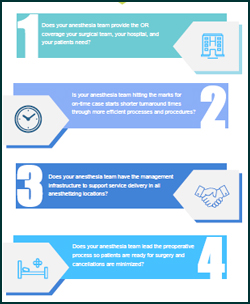In any business and with any team, collaboration is the key to a lot of things. It engenders all-around excellence. If teams don’t collaborate, performance will be poor, productivity will likely be low, and profitability may head south. That’s all especially true of healthcare, at a time when providers and facilities need to be more efficient, available, and less costly without sacrificing safety and quality. Given all the changes in healthcare reimbursement and reporting guidelines, there will be a price to pay for less-than-stellar work and patient outcomes.
 Though caregivers are aware of this, they may not realize it is not too difficult to accomplish healthcare’s new mandates when everybody involved in the care continuum collaborates. That collaboration needs to cross specialties and departments. Such an interprofessional approach will allow the individual and the collective skills and experience of care team members to function more effectively and at a higher level.
Though caregivers are aware of this, they may not realize it is not too difficult to accomplish healthcare’s new mandates when everybody involved in the care continuum collaborates. That collaboration needs to cross specialties and departments. Such an interprofessional approach will allow the individual and the collective skills and experience of care team members to function more effectively and at a higher level.
When you think about it, if an OR nursing team isn’t working well with an anesthesia team, how can you expect interactions between surgeons and other key personnel to be smooth? And what do those strained relationships mean for clinical outcomes, patient experiences, and employee moral?
Success in healthcare is all about improved clinical outcomes, high patient satisfaction rates, and lower costs. Make no mistake, underlying those accomplishments is collaboration so if you haven’t already, it’s time to make room in that sandbox.
Related Resources
Is Your Anesthesia Team Collaborative: Six Questions To Ask [Infographic]
